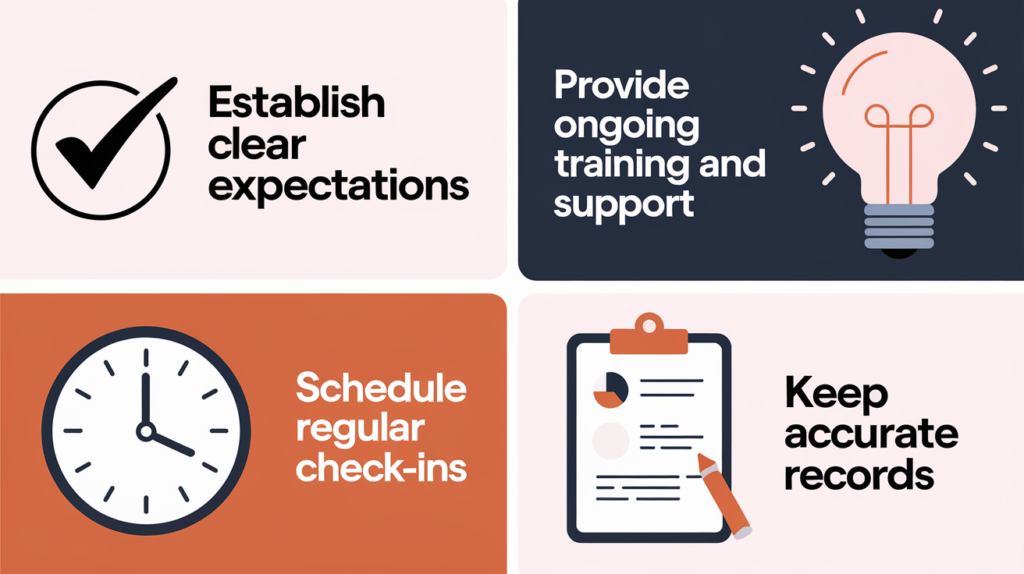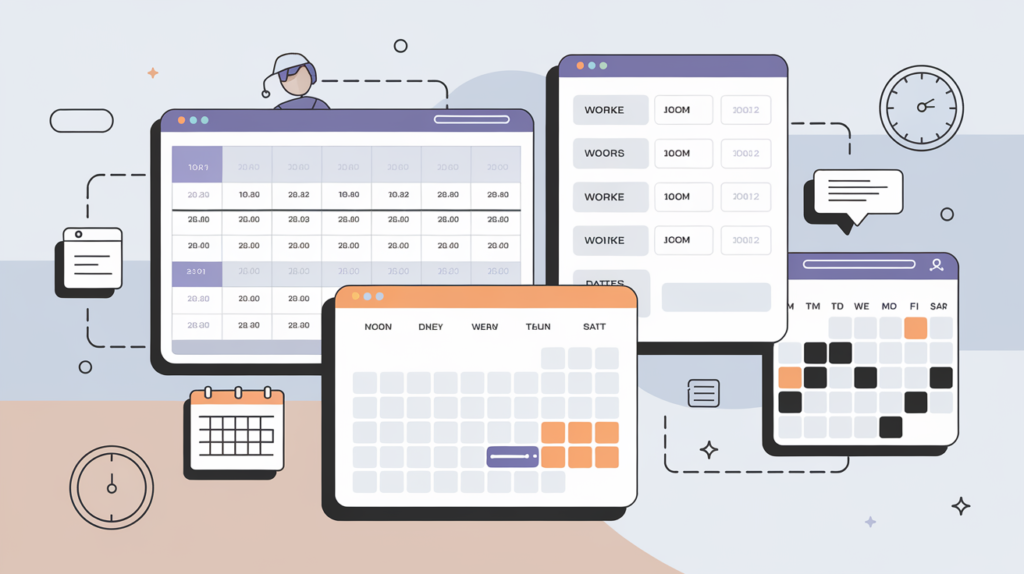Physical Address
304 North Cardinal St.
Dorchester Center, MA 02124
Physical Address
304 North Cardinal St.
Dorchester Center, MA 02124


To fully grasp What Is A Statutory Employee?, we must first understand the criteria set by the IRS. A statutory employee is a type of worker who is classified as an employee for tax purposes but retains characteristics that resemble an independent contractor.
According to the IRS, statutory employees fall into specific categories that define their employment status. These categories are:
If a worker meets the conditions of these categories, they can be classified as a statutory employee.

The classification of statutory employees is essential for distinguishing them from other types of workers:
Understanding the distinction between these classifications is vital for compliance with tax regulations and labor laws.

Identifying statutory employees can help clarify their classification. Here are some examples:
Drivers delivering products such as beverages, bakery goods, or laundry can be classified as statutory employees. These workers often operate under an employer’s guidance, although they typically have some autonomy in managing their schedules and routes.
For instance, a driver who distributes bottled beverages to local stores but is paid on commission based on sales is a statutory employee. They might drive their vehicle, but the employer provides guidance on routes, pricing, and customer interactions.
Life insurance agents who primarily sell for one company can be classified as statutory employees. These agents often work independently, developing their client base, but remain closely tied to the company they represent. For example, a life insurance agent who earns commissions based on the policies they sell for a specific company fits the statutory employee classification.
Traveling salespeople solicit orders from retailers or other businesses, working full-time for a single employer. They may have significant control over their schedules and sales techniques but are still classified as statutory employees because of their primary relationship with one company. For instance, a salesperson for a clothing brand who travels to different stores to take orders is a statutory employee.
Home workers who assemble or manufacture products using materials supplied by their employer are also classified as statutory employees. These individuals may work from their homes and return completed products to the employer. An example includes someone who assembles electronic devices at home for a tech company, returning finished products to the employer for distribution.

To be classified as a statutory employee, certain criteria must be met. In addition to fitting into one of the IRS-defined categories, other requirements must be fulfilled:

Understanding statutory employees is crucial for HR leaders and business owners for several reasons:
Misclassifying workers can lead to serious consequences, including financial penalties and back taxes. HR leaders must accurately classify workers as statutory employees to ensure compliance with IRS guidelines and avoid potential legal issues.
While statutory employees may not receive the full range of benefits that regular employees are entitled to, they still qualify for certain benefits, such as Social Security and Medicare. HR leaders must be aware of these benefits and ensure they are properly administered.
Payroll staff must understand how to process payments for statutory employees correctly. This includes withholding Social Security and Medicare taxes without withholding federal income taxes. Ensuring that payroll staff are trained on these distinctions is critical for smooth operations.
HR leaders must be proactive in managing the risk associated with statutory employees. Regular audits of employee classifications, payroll processes, and compliance with labor laws can help mitigate risks and protect the organization from potential lawsuits or fines.

Statutory employees and regular employees may seem similar at first glance, but several key differences set them apart:

Statutory employees may not enjoy the same benefits as regular employees, but they are entitled to specific rights and benefits, particularly concerning Social Security and Medicare. Here’s a closer look:
Statutory employees can claim various work-related expenses on their taxes, helping to reduce their taxable income. Some common deductions include:

Effectively managing statutory employees requires a clear understanding of their unique classification and associated responsibilities. Here are some tips for businesses:
Maintain open lines of communication with statutory employees regarding expectations, payment structures, and benefits. Clarity helps to build trust and reduce misunderstandings.
Ensure that all workers are accurately classified as statutory employees based on IRS guidelines. This is crucial for compliance and avoiding potential penalties.
Maintain thorough records of work performed by statutory employees, including time worked, expenses incurred, and communications. This documentation is essential for tax reporting and compliance.
Conduct regular audits of payroll practices and worker classifications to ensure compliance with labor laws. This helps identify any discrepancies that need to be addressed.
Provide training opportunities for statutory employees to improve their skills and keep them engaged. This can include workshops, online courses, and other professional development activities.

Accurate tracking of statutory employees’ hours and work-related expenses is vital for ensuring they are compensated correctly and meet tax obligations. Here are some effective software options for businesses managing statutory employees:
This tool provides features such as GPS tracking, time tracking, and customizable reporting. It’s designed to integrate seamlessly with payroll systems, allowing for easy management of statutory employees’ hours.
This time tracking tool is user-friendly and allows employees to track hours spent on different projects. It offers reporting features that can help employers manage productivity and workload efficiently.
Harvest is excellent for businesses needing robust time tracking and expense management capabilities. It integrates well with various accounting software, making it easy to manage payroll and ensure compliance.
This comprehensive HR solution includes time tracking, payroll processing, and benefits management, making it suitable for organizations managing various employee classifications, including statutory employees.

Statutory employees have unique tax responsibilities that differ from those of regular employees and independent contractors. Understanding these responsibilities is crucial for both employers and employees. Here are some key tax obligations:
Statutory employees must have Social Security and Medicare taxes withheld from their wages, just like regular employees. This ensures they receive benefits from these programs when they retire or if they become disabled.
Unlike regular employees, statutory employees are not subject to federal income tax withholding from their wages. They must calculate and pay their income taxes when filing their annual returns.
Although statutory employees are classified differently for tax purposes, they may still need to pay self-employment tax if their business expenses exceed their income. It’s essential for statutory employees to understand their financial responsibilities fully.
Statutory employees can claim business-related deductions when filing their taxes. These include expenses for supplies, travel, and other necessary costs incurred while performing job duties. Proper record-keeping is essential to substantiate these deductions.
Yes, statutory employees can deduct business expenses on their taxes by filing Schedule C (Form 1040). This form allows them to detail their income and expenses, providing a straightforward method to reduce taxable income.
Here are some common deductions statutory employees can claim:
If statutory employees use their vehicle for business purposes, they can deduct expenses related to mileage, fuel, and maintenance. It’s crucial to maintain accurate records of mileage for both personal and business use.
Statutory employees working from home can claim a deduction for expenses related to their home office, such as utilities, internet, and office supplies. However, they must ensure that their home office is exclusively used for work purposes.
Any travel related to work, such as lodging, meals, and transportation, can be deducted. Employees should keep detailed receipts and records to substantiate these claims.
Costs related to education and training, including courses, conferences, and seminars, can be deducted if they are directly related to the employee’s work.
Statutory employees can also deduct the costs of any tools, equipment, or supplies necessary for their job. This includes computers, software, and office supplies.
In conclusion, understanding What Is A Statutory Employee? is essential for businesses and workers alike. This classification has significant implications for tax obligations, employee benefits, and overall workforce management. By clarifying the distinctions between statutory employees, regular employees, and independent contractors, HR professionals can make informed decisions, ensure compliance with tax laws, and effectively manage their workforce.
Statutory employees enjoy certain advantages, such as tax deductions for business expenses and contributions to Social Security and Medicare. However, both employers and employees must understand their respective rights and responsibilities under this classification to avoid potential pitfalls.
With the evolving landscape of the workforce, staying informed about classifications like statutory employees will be crucial for success in the business world. By fostering a solid understanding of these classifications and implementing best practices, organizations can navigate the complexities of the modern employment landscape.